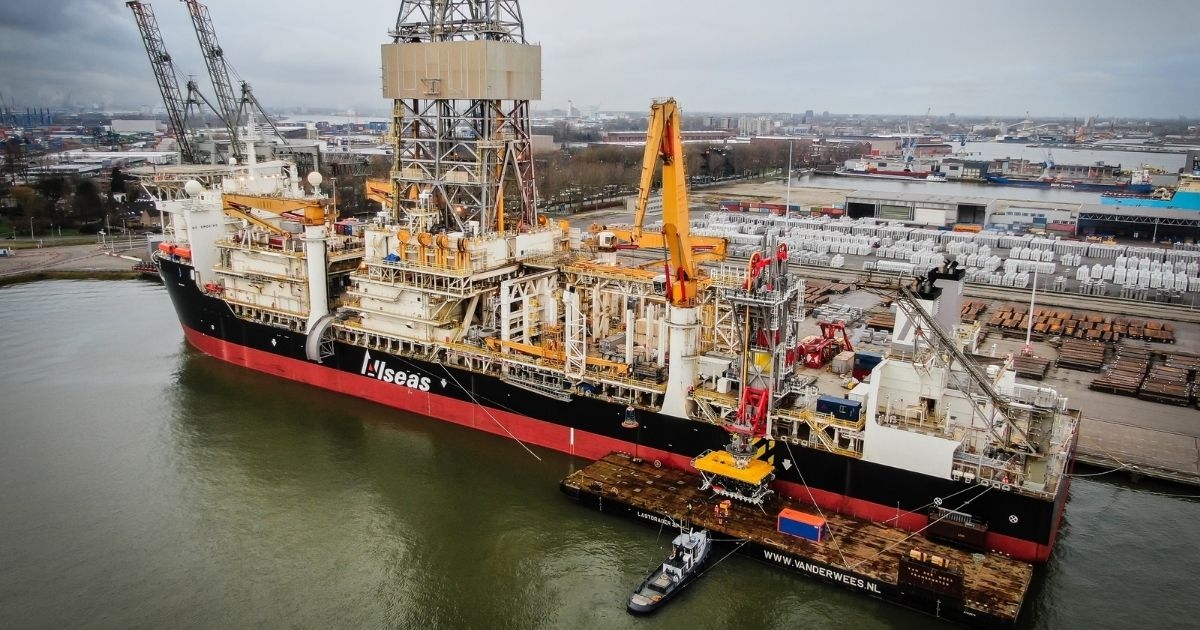TMC and Allseas to Develop and Operate World’s First Commercial System to Collect Deep-Sea Polymetallic Nodules

TMC the metals company Inc., an explorer of the world’s largest estimated undeveloped source of critical battery metals, announces that its subsidiary NORI signed a non-binding term sheet with its strategic partner and shareholder, Allseas Group S.A. (“Allseas”) to develop and operate a commercial nodule collection system with a targeted production capacity of 1.3 million tonnes per annum (Mtpa) of wet nodules and expected production readiness by Q4 2024.
Since forging a strategic alliance in 2019, Allseas and TMC’s subsidiary NORI have been working together to develop a pilot collection system to recover polymetallic nodules from the seafloor in the NORI-D Area of the Clarion Clipperton Zone (“CCZ”) of the Pacific Ocean and transport the nodules to shore for processing using TMC’s near-zero solid waste flowsheet into battery metal precursor materials and manganese silicate product expected to be used in manganese alloy production for the steel industry. The pilot collection system — that includes the production vessel Hidden Gem on the surface, a collector robot on the seafloor and a riser that lifts nodules from the seafloor to the surface — is currently undergoing wet testing by Allseas in the Atlantic Ocean and is expected to be piloted in the NORI-D Area in the Pacific Ocean later this year.
The parties expect that following the completion of the pilot tests in the Pacific Ocean, Allseas will promptly initiate the upgrade of the pilot collection system into a production-ready commercial system with a targeted production capacity of 1.3 Mtpa of wet nodules and initial use of five years prior to additional upgrades (“Project Zero System”). The parties intend to co-finance in equal parts all costs required to get into production currently estimated to be less than EUR 100 million. Once in production and subject to Allseas achieving certain production targets, NORI expects to pay Allseas a nodule collection and transshipment fee — sufficient to cover Allseas’ operating expenses, Allseas’ share of upfront and CAPEX costs and a fee linked to the value of contained metals — currently estimated at ~EUR 150 per wet tonne of nodules in the first year of production and expected to be reduced by over 20% in the following years as Allseas scales production up to 1.3 Mtpa of wet nodules. The parties intend to further detail and revise these cost estimates in the definitive agreement expected no later than 31 December 2022 following the completion of the pilot collection tests. Both parties expect to see the per-tonne cost to further decrease from these estimates if Allseas scales production capacity of its surface production vessel by adding multiple collectors on the seafloor.
Polymetallic nodules contain high grades of nickel, manganese, copper and cobalt — key metals required for building electric vehicle batteries, renewable energy technologies and steel for infrastructure. TMC’s nodule portfolio in the CCZ is estimated to be the world’s largest undeveloped single source of critical battery metals. The demand for these metals is surging and commodity prices for metals contained in nodules have all hit multi-year highs. TMC believes that upgrading the pilot nodule collection system into a production-ready collection system may allow NORI to significantly reduce capital requirements and shorten time to commercial production of the critical minerals required for the clean energy transition.
Allseas and NORI also intend to investigate acquiring a second production vessel similar to the Hidden Gem, a Samsung 10000, that is expected to be engineered to a higher production rate of 3Mtpa of wet nodules. A higher-production rate system is expected to reduce the per tonne nodule collection cost significantly compared to the first production system that TMC and Allseas intend to develop and operate.
Edward Heerema, Founder of Allseas commented: “For the last three years we have been building the pilot nodule collection system with the intent to upgrade it into a production system after the pilot trials. With the pilot system ready and undergoing wet tests, we are planning ahead for the next phase: upgrade and first small-scale commercial operations, maybe even acquiring a second vessel. While we will no doubt learn a lot in the coming months, we are pleased to have a potential economic framework for how we intend to proceed together with our partners at NORI and TMC.”
Gerard Barron, Chairman and CEO of TMC, said: “As a partner, Allseas delivers — despite pandemics and supply chain disruptions. We really appreciate their intention to finance 50% of the costs of developing and getting Project Zero System production-ready by Q4 2024 and working out potential nodule collection and transshipment fees with NORI. Even at the estimated ~EUR 150 per wet tonne of nodules, we expect to have a meaningful margin left for logistics and processing. If Allseas scales production from the initial capacity, we expect per tonne costs to go down further.”

